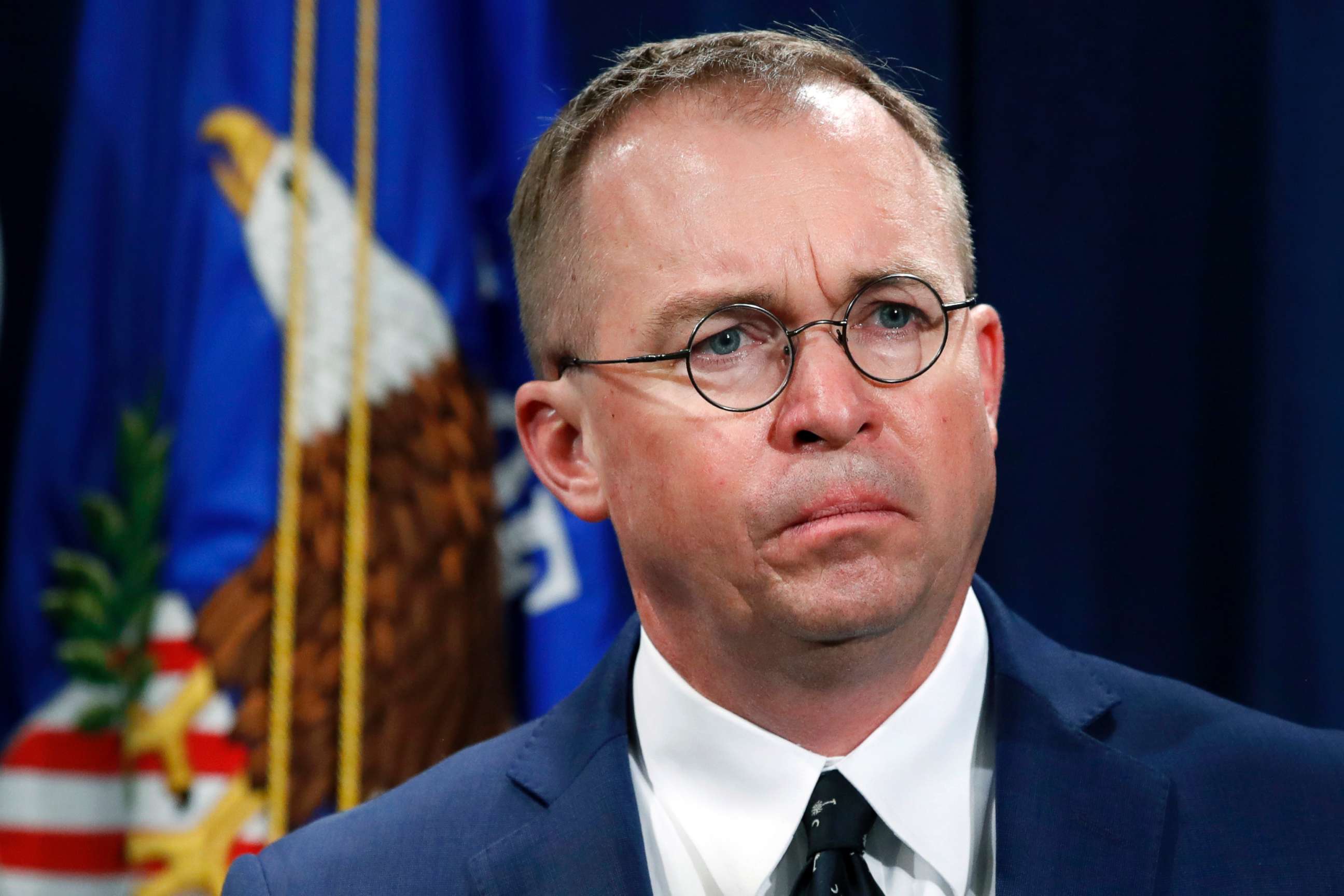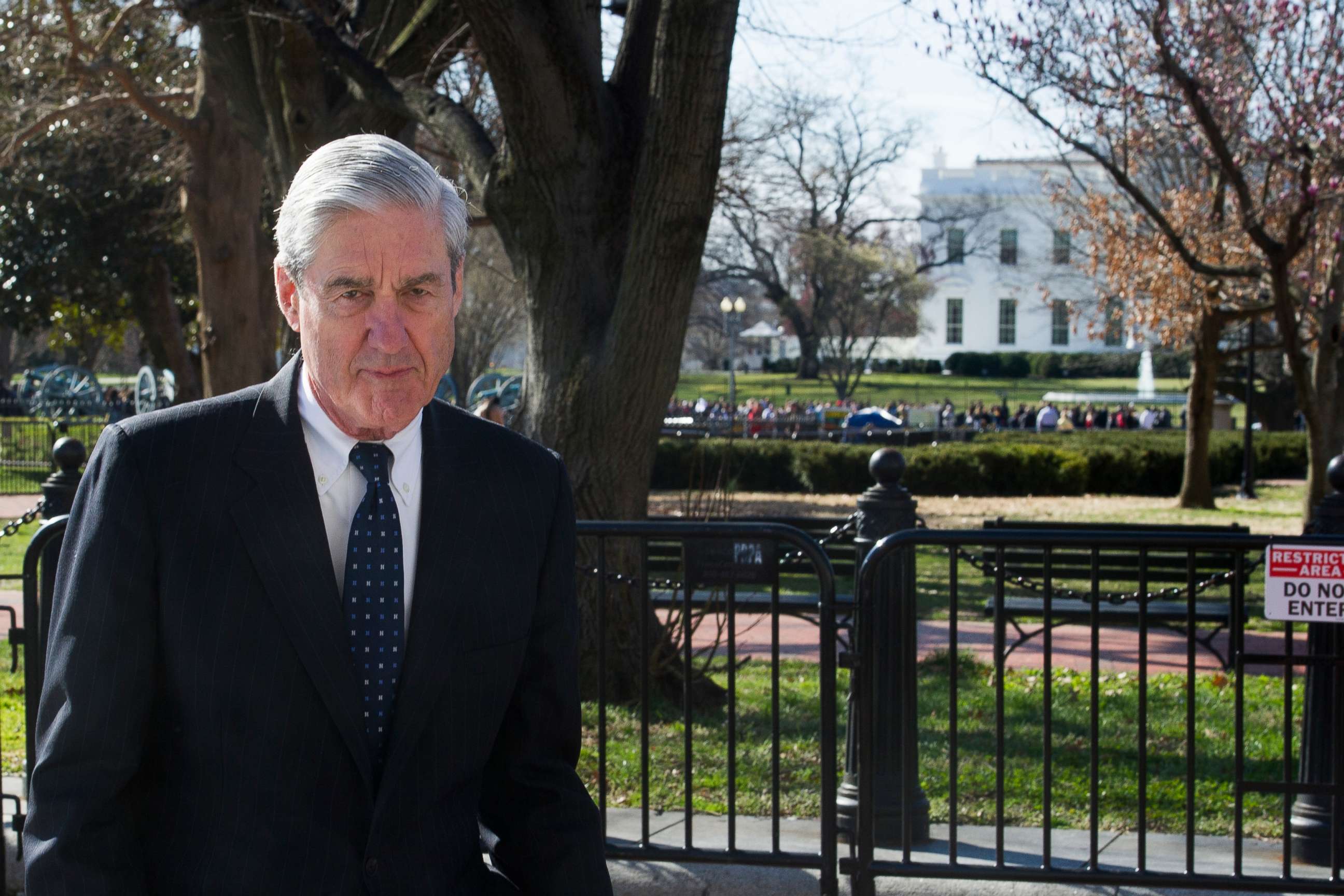'Barr gets to handle this. That's how the law works': Acting White House chief of staff Mick Mulvaney on Mueller report going to Congress first
The Justice Department is currently making redactions to Mueller's report.
Acting White House chief of staff Mick Mulvaney said Sunday that how special counsel Robert Mueller's report is handled is up to Attorney General William Barr, adding that "that's how the law works."
"From the very beginning, we've said what we're saying now, which is Mr. Barr gets to handle this. That's how the law works. And Mr. Barr has made it clear that he's going to release it to Congress before he shows it to us, and that's his decision, so we're going to let the system work," Mulvaney told ABC News Chief White House Correspondent Jonathan Karl on "This Week."
"So, if Mr. Barr wants to show it to Congress first, he's going to do that. If he's going to redact part of it, he is going to do that. If he's not, he's going to do that. This is how the system is supposed to work. And we're very happy to let the system play out the way the law intended."
In a letter to Congress sent Friday, Barr said that the Department of Justice is currently in the process of reviewing and making redactions to Mueller’s report, which is expected to be released in mid-April. He also said that "there are no plans to submit the report to the White House for a privilege review."

On March 24, Barr released a four-page letter laying out Mueller’s "principal conclusions," which indicated that no members of President Donald Trump’s campaign coordinated with Russian officials to influence the 2016 presidential election.
On the issue of whether the president obstructed justice, Mueller made no conclusion. Barr, however, determined that Mueller’s reported "identified no actions that, in our judgment, constitute obstructive behavior."
In the letter sent Friday, Barr said this four-page letter was not meant to be a summary of Mueller’s findings, but rather just "the bottom line" of the special counsel’s report.
At a rally in Grand Rapids, Michigan on Thursday night, Trump said of the Mueller report, the entirety of which has yet to be released, "Total exoneration. Complete vindication."
According to the attorney general, however, on the issue of obstruction of justice in the nearly 400-page report, Mueller wrote, "While this report does not conclude that the President committed a crime, it also does not exonerate him."
"Why do you, and why does the president say that Mueller found no obstruction? In fact, he makes no such statement," Karl asked Mulvaney on "This Week."
"When you do an investigation like this, there’s typically two outcomes, either criminal indictments come down or it just quietly goes away. These types of investigations are not designed to exonerate people," Mulvaney said. "So what you’ve saw here is simply Mueller saying you know what? I’m going to let Barr call this one. He had plenty of evidence to say on collusion absolutely not and he actually punted over to Barr.
"If you go elsewhere in the letter … it says that he and (Deputy Attorney General) Rod Rosenstein, who up until last week was a darling of the left, found not a single -- not a single piece of conduct, not a single act that constituted obstruction. So that’s why we are absolutely comfortable saying that the president has been fully exonerated."

The acting chief of staff said that it’s "time to move on," but that "Democrats simply refuse to accept that."
"I know that a lot of my friends in the other party are still upset that Donald Trump is president, but it is time to move on because enough is enough when it comes to collusion and obstruction," Mulvaney said. "Congress needs to find something else to worry about."
Mulvaney asserted on "This Week" that the reason the special counsel investigation may have started in the first place was because "there was a small group of people within the law enforcement community, specifically the FBI and the DOJ who really did want to overturn the election," claiming they were "stunned" by Trump’s victory.
"They cannot accept the fact that he’s president and from the very beginning, in fact before the election they actually set the table to try and prevent him from becoming president," he said on "This Week" Sunday. "If that happened, that is a challenge to our republic the likes of which we’ve not seen for a long time and we don’t think it’s that outrageous to suggest that it could have."




